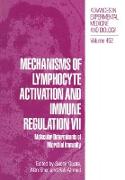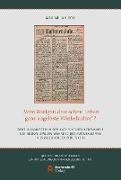- Start
- Mechanisms of Lymphocyte Activation and Immune Regulation VII
Mechanisms of Lymphocyte Activation and Immune Regulation VII
Angebote / Angebote:
During the last decade, rapid progress has been made in the area of microbial immu nity. New conceptual frameworks have emerged with regard to the processing and presen tation of peptides and nonpeptide antigens from microbes, especially bacteria, to T cells in the context of classical MHC class I and nonconventional MHC I molecules. Experimen tal models have been instrumental in defining some of these pathways for generating pro tective immune responses against microbes, which form the basis for the design of new vaccines. New evidence has stressed the importance of innate immunity in microbial in fections. The concept of dichotomy within T helper cells has revealed the role of these cell types in resistance and susceptibility to microbial-mediated pathology. These latest devel opments in microbial immunity are discussed in this volume. Natural killer cell development is known to be regulated by the presence of MHC class I antigens. Receptors for MHC class I molecules on NK cells have been discovered. Interaction of these receptors with their specific ligands leads to inhibition of cytotoxicity. Vinay Kumar and colleagues review NK cell differentiation and ontogeny, and functions of NK cells in experimental animals. Lewis Lanier discusses the role of a newly discov ered molecule, DAP 12, in KIR and other receptor-mediated signal transduction in NK cells. Eric Long describes the regulation of immune response by inhibitory receptors.
Folgt in ca. 5 Arbeitstagen




